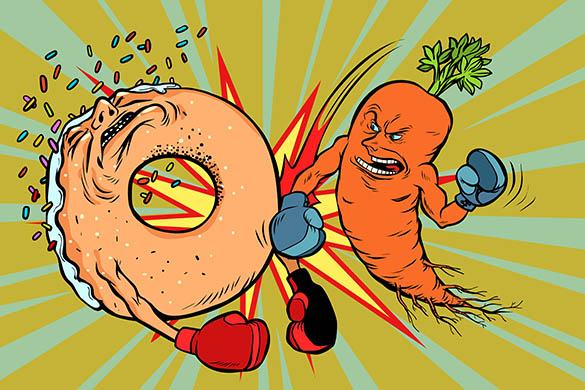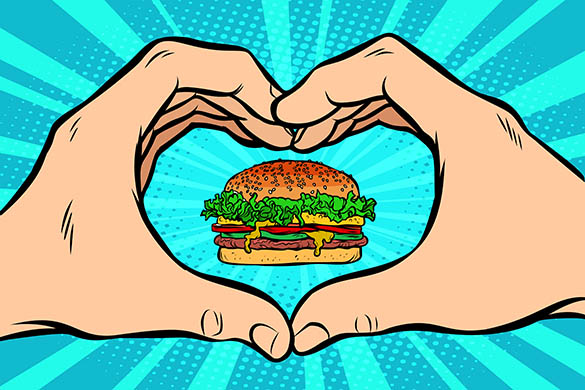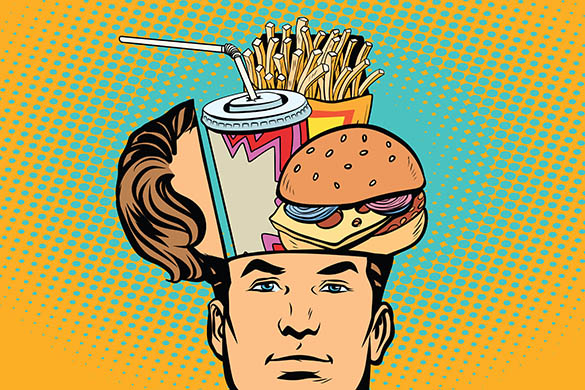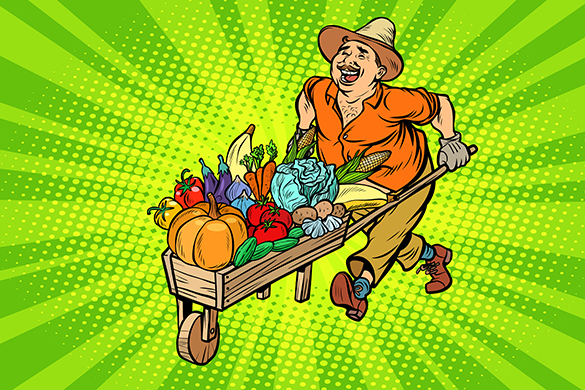
Vegetarians don’t eat meat. Vegans don’t eat any animal products. This simple statement is far from a catastrophic revelation. No seafood, milk, cheese, eggs, butter, anything that’s ever come from an animal.
Yup, even honey.
But then, what do they eat? Well, a lot, surprisingly!
We covered some of the choices in our article on the Top 10 Vegan Sources of Protein. When wondering what vegans eat, it would initially seem sensible to call Veganism a ‘plant-based’ diet, but as it turns out, that phrase holds its own meaning entirely. While you certainly can be a vegan and eat a plant-based diet, that isn’t absolutely necessary.
Thanks to modern technology, a wide variety of processed ‘vegan’ food is available at superstores across the United States. But just because it’s vegan, does that mean it’s good for you? And if it’s not Veganism, then what the heck does qualify as a ‘plant-based’ diet?
What is a “plant-based” diet?
And how is it any different from being vegetarian or vegan?

Believe it or not, a real beef hamburger CAN be part of a plant-based diet!
To say that burgers are the foundation of a plant-based diet would be a total fib. But plant-based diets can and do often include things like beef, chicken, seafood, oils, eggs, butter, and et cetera. However, the focus during a plant-based diet isn’t on eliminating meat entirely, but including it as a minor addition, if used at all. So yes, a plant-based diet can include the occasional cheeseburger, but there is far more to it than that.
The foundation of a plant-based diet is making plants the primary food source. This started in the science community, where the term ‘plant-based’ seemed more appropriately devoid of ethical attachments. Veganism had previously been established as the abstinence from meat and animal by-products as a purposeful, conscious, ethical choice. But the scientific community needed a name for those who ate primarily plants, but had nothing to do with the ethics of veganism. Thus, the plant-based term was coined, and this messy assemblage of lifestyles became all the more complicated.
So… what about fast food, then?
If “plant-based” means some meat allowed, how about fries to go with it?

If meat is on the table, we know you’ve got other dietary no-no’s on your mind.
Technically, french fries can be a vegan food. Most people don’t realize this, but the fries made in fast food chains are often fried in a mixture of fats, some of which include animal fat or byproducts. So even the fries, made of potatoes, are not necessarily vegetarian, much less vegan. Still, they’re plant-based, right? They’re a potato, and that starchy tuber is a confusing vegetable cousin, but it’s certainly not an animal, right?
That’s where a new set of differences emerges, called the “Whole-food Plant-based” diet, surely by no one other than the scientific community. This is the classification of eating choices that limits not just meat and seafood, but the refined sugars, bleached flours, and white rice that can often make up a large part of an uninformed vegan diet.
Whole-food Plant-based Diet
So vegans eat refined sugars and plant-based eaters eat meat?

What’s the real deal on fake meats versus refined sugar or ‘whole’ foods? .
Eating a ‘whole-food plant-based’ diet, as termed by the scientific community, is supposed to be a diet that consists mainly of plant-based foods as well, except unlike Veganism and just plant-based diets, the foods chosen for the foundation of this diet are focused on whole grains, fresh vegetables, and a myriad of mixed legumes. There is no shortage of variety, though the options are very different than what’s been discussed thus far.
This lifestyle is advocated right now as one of the most often recommended by doctors. It centers around the notion that plant-based doesn’t necessarily mean automatically healthy. As the vegan movement spread, more and more food manufacturers began making highly processed- though technically, still ‘vegan’- foods widely available in stores. This wide availability did a lot to attract people to the lifestyle, but even when not eating animal products, it is certainly not healthy to fill your body with preservatives and unhealthy fats.
What should I do?
Is there a right answer to these confusing diets? Yes! And it’s easy.

‘Whole’ foods are exactly what they say. They come from the ground, whole, complete.
Dietary needs can vary wildly from person to person depending on any number of health factors. What’s perfect for someone’s optimal level of health might be a recipe for disaster for someone else. It all depends on your body and what it’s individual needs are.
However, more and more doctors are recommending whole-food, plant-based diets. Whole grains and fresh fruits and vegetables are the ideal foundation for a healthy lifestyle, with intermittent additions of things like animal products and sugars. Recent studies suggest that this Whole-food Plant-based method of eating can reduce risks for certain types of cancer, and may even increase your life expectancy.






